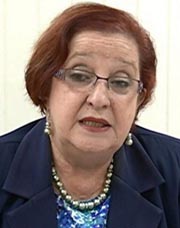The Civil Aviation Bill of 2017 was passed on Monday night, despite objections from Opposition Chief Whip Gail Teixeira, who requested that it be further deferred to the Special Select Committee for amendments.
The new bill seeks to repeal and replace the Civil Aviation Act Chapter 53:01 and bring Guyana’s aviation law into conformity with primary legislation regulating civil aviation in other parts of the world.
The bill also makes provisions for the enablement of the Chicago Convention and the agreement establishing the Caribbean Aviation Safety and Security Oversight System.

However, several concerns were raised by Teixeira, who, having described the bill as having the potential to embarrass Guyana, asked that it be deferred.
“We were told that the matter would be deferred but the minister is proceeding and we know why; there is a big conference coming up here on November 22 with civil aviation, so I’m sure he wants the pleasure of announcing that the bill has been passed. However, he is well aware that this bill has a number of problems with it and has been written to by several bodies, including the civil aviation agencies and organizations dealing with civil aviation,” Teixeira said.
Included among the issues she cited is the bill’s alleged non-compliance with International Civil Aviation Organisation (ICAO) standards, its “draconian” provisions which target passengers, the inclusion of economic regulatory functions for the Guyana Civil Aviation Authority (GCAA) and the outlined role of the Minister of Public Infrastructure.
“In terms of compliance with ICAO, it has some major issues making it non-compliant with ICAO, even though it says it is, we have been doing our research and a number of the ICAO requirements are not fulfilled in the bill,” the Opposition Whip said.
Intoxicated
“The issue too is that there are other aspects of the bill to do with offences that are draconian like the other bills, the cybercrime bill and anti-terrorism. For example, a passenger going on the plane that is tipsy or intoxicated, that passenger can be fined a million or more dollars and serve a term of imprisonment. There is a distinction in the bill that makes very draconian offences for what are regular passenger problems and going right through to terrorist and stuff like that,” she added.
Stabroek News understands that as stated under Part XIX: unruly passenger offences, a passenger, except a person under medical care who is intoxicated and boards an aircraft or becomes intoxicated on the aircraft, commits an offence and is liable on summary conviction to a fine of $1 million and to imprisonment for two years.
For the purposes of this section, a person is intoxicated if the pilot-in-command, or senior flight attendant authorized by the pilot-in-command for this purpose, has reasonable grounds to believe that the person is under the influence of an intoxicating liquor or substance to such an extent as to be incapable of properly conducting himself or herself; presents a hazard or potential hazard to the aircraft or to persons on the aircraft; or offends against the good order and discipline required on an aircraft.
Elaborating further on the perceived issues, Teixeira announced that this is the first time the GCAA will be given the authority to get involved with economic regulations, and noted that historically, the agency has always been involved with the safety and technical regulation of the aviation industry.
Her reference was to that of a new provision in the bill that adds economic regulation of aerodromes, airports and air service providers to the functions of the GCAA.
Competence
“The inclusion of economic regulation in the industry creates a situation where governments, no matter which government, will not have a say or a critical role to play in terms of investments and economic issues and competition within the aviation industry; it is left to the civil aviation. The fact that the agency has little competence to do this is a matter of concern,” the Member of Parliament (MP) added.
On the matter of what she said was the rejection of a request for a follow-up meeting made by an aviation organisation for clarification of a number of issues, Teixeira said that though the request was made a year ago, the committee has ignored completely the issues that were raised by the aviation body.
Teixeira also stated that there are aspects of the bill that gives the minister certain powers which are not appreciated. These related to the allocation of private property and the prevention of the use of private property for civil aviation purposes.
“You were told before in the second reading that there were problems in this bill, you were told by non-governmental organizations who came before the committee that there were problems, you were asked to check but you have ignored…The support of the report has been frugal with the information and richness of the aviation industry… [you have] treated the bill and the issues before as though you are going through it robotically,” Teixeira lamented.
However, Minister of Public Infrastructure David Patterson, in his rebuttal, said he brought the bill up as it had been in the select committee for a year and half (since May 2017) and been “exhaustively debated.”
“The report will show that we had 18 meetings and of the 18 meetings, the member has only attended four meetings. The claim that the Bill is not ICAO compliant is not true sir, if the member had attended meetings she would have learnt and agree with us that the Bill is ICAO compliant,” Patterson said, addressing the Speaker of the House.
“If the member came to the meeting, attended the select committee meetings, she would have learnt and agreed with us that the bill is ICAO compliant. We had the help of technical staff from the Guyana Civil Aviation Authority; we had the help of the Parliamentary Counsel and our meetings, sir, were half-day long.” he added.
Notwithstanding, the minister said the deliberations had the benefit of input from Opposition Member of Parliament Joseph Hamilton, who, together with Government MP Michael Carrington, had pushed for the increase in fines for passengers found to be intoxicated on the aircraft.
“The questions of fines and increase of fines came from the two most unlikely persons in the committee…even to my, as the chairman, dismay, proposed and insisted that the fines were increased, because they deemed that the fines that were in the original proposal were minuscule and the two gentlemen thought that the fines needed to be increased, so the severity of the issues can be conveyed,” Patterson said.
Further, the subject minister explained that written presentations came from the Guyana Police Force, the Guyana Defence Force, the Hydrometeorological Service and the Civil Defence Commission. “Of all the names listed, of all the persons that came before us, one single entity raised the concerns, out of about 10 entities that came here to us,” Patterson said.
“There are 10 registered aircraft operators in this country and nine of them are represented by the National Air Transport Association. One declined to join the aircraft association and that one is the only organisation that raised any objection or raised all the objections that the honourable member mentioned,” he added.
The minister also responded to Teixeira’s concerns relating to the new economic regulation function of the GCAA, explaining that the economic regulations are a standard part of the industry and there is only one privately operated airstrip in the country.
“There is a concern that the economic regulation will adversely affect them but we have assured them, sir; I have personally assured them that economic regulations will not adversely affect anyone,” Patterson said. While addressing licensing and registration, he stated that, “it is the standard all through.”
Offering further clarity on concerns presented in relation to aspects of the bill which assert the minister’s role, Patterson said, “As chairman, I made it my particular duty to ensure wherever the minister’s name appeared in the bill, it’s only there purely for necessity and could not be avoided because I, like the Honourable Member, do think that the minister is just to facilitate. But there are certain things that the minister is required to do, that is why his name has to be there. He has to put some Orders in place, gazette a few things; that, obviously, is why the minister’s name appears there.”









